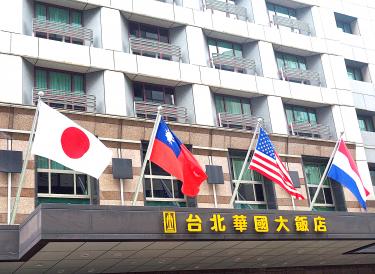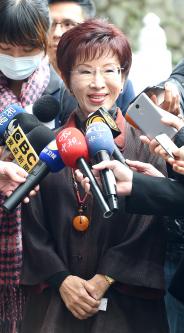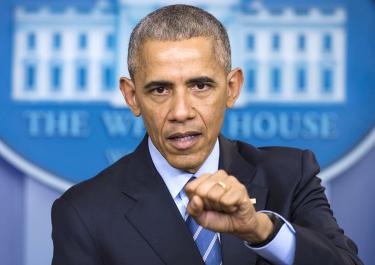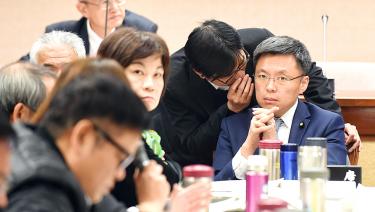US president-elect Donald Trump said in an interview with the Wall Street Journal that he would not commit to the “one China” policy until he sees progress from Beijing in its currency and trade practices.
In excerpts from the hour-long interview published on Friday, Trump, when asked if he supported the “one China” policy toward Taiwan that has underpinned US relations with Beijing for decades, said: “Everything is under negotiation, including ‘one China.’”
“We sold them [Taiwan] US$2 billion of military equipment last year. We can sell them US$2 billion of the latest and greatest military equipment, but we’re not allowed to accept a phone call. First of all, it would have been very rude not to accept the phone call,” Trump said in the interview.
In a previous interview with Fox News Sunday with Chris Wallace last month, Trump questioned the need for Washington to stick to its “one China” policy.
“I fully understand the ‘one China’ policy, but I don’t know why we have to be bound by a ‘one China’ policy unless we make a deal with China having to do with other things, including trade,” he said at the time.
Presidential Office spokesman Alex Huang (黃重諺) at the time said that the office had no comment about Trump’s remarks on the Fox show.
While in El Salvador on Friday, President Tsai Ing-wen (蔡英文), in response to reporters’ questions on concerns that Taiwan might become a bargaining chip in the relationship between the US and China, said she had heard the view.
“I feel that we are able to deal with such things and will put Taiwan’s interests first,” she said.
Trump has said he would label China a currency manipulator after he takes office.
In Friday’s interview, he said he would not take that step on his first day in the White House.
“I would talk to them first,” he said. “Certainly they are manipulators, but I’m not looking to do that.”
However, the president-elect made plain his displeasure with China’s currency practices.
“Instead of saying, ‘We’re devaluating our currency,’ they say, ‘Oh, our currency is dropping.’ It’s not dropping. They’re doing it on purpose,” the Wall Street Journal quoted him as saying. “Our companies can’t compete with them now, because our currency is strong and it’s killing us.”
In other news, a personal e-mail of former US secretary of state Hillary Rodham Clinton recently leaked by WikiLeaks suggested an adviser, Jake Sullivan, once shared with her an article titled “To save our economy, ditch Taiwan” by Paul Kane, a former international security research fellow at Harvard’s John F. Kennedy School of Government.
In the article, Kane suggested that US President Barack Obama could bolster US economic security by ending its military assistance and arms sales to Taiwan, in exchange for a write-off of US$1.14 trillion in US debt held by China.
“I saw it and thought it was so clever. Let’s discuss,” said Clinton, who ran against Trump in the US presidential election last year, in the leaked e-mail.
Additional reporting by CNA and staff writer





